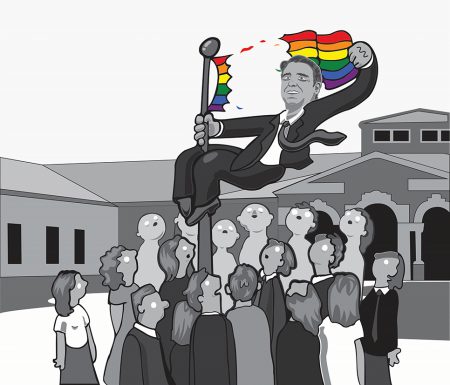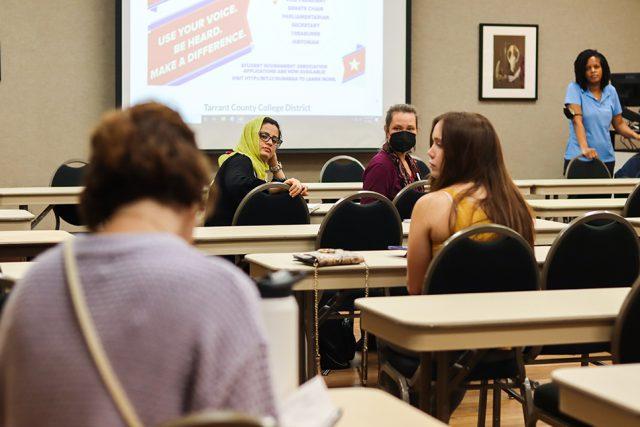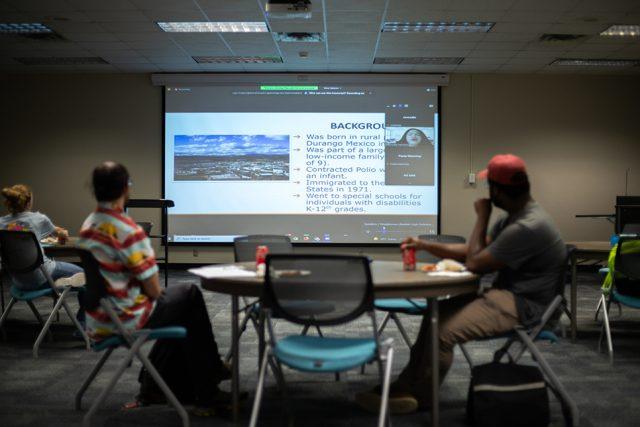
Jimmy Arca/The Collegian
The passing of Florida’s “Parental Rights in Education” bill is causing an uproar throughout the nation.
The bill, referred to in media as the “Don’t Say Gay” bill, has struck a nerve for many people due to its alienation of LGBTQ youth and vague wording. The main preface of it is to remove conversations regarding gender identity or sexual orientation for elementary students from kindergarten through third grade.
While many people understand the importance of parents being able to discuss these topics with their children on their own, much of the controversy comes with the lack of specificity of what conversations within these topics are considered “appropriate.”
Since the bill emphasizes giving over control to parents to decide on what they deem is OK to talk about in the classroom, even the most innocent of questions can now be the cause for a lawsuit.
One thing to note is that people are not upset because they want young children to be spoken to about all things regarding sexual orientation and gender identity, they are upset because the wording of the bill is kept so vague that even a correction of the wrong use of pronouns can now be seen as inappropriate. People are concerned that if parents find anything said by a teacher or in a classroom “uncomfortable,” this bill is the main tool in their arsenal to be able to have them removed.
This is cause for serious concern considering that schools are already underfunded. If a parent doesn’t like something their child was taught, they can just take the school to court, digging deeper into the school’s budget.
Of all the things the governor of Florida could focus on regarding its school system, it seems arbitrary to choose to create a bill for an issue that isn’t a major problem.
What’s interesting is that there was already a lack of mention of anything inappropriate or sexual in the curriculum for these students to begin with, which is acknowledged by the lack of inclusion in the bill regarding the conversation of sexual acts. It makes you wonder what exactly they are trying to get rid of.
The conclusion most people have come to, which is also the reason for the common name the bill has been given, is that the problem lies within the mere acknowledgment of the LGBTQ community.
This narrative is not only harmful to the students but also to the adults around them who may be part of the community and are now not able to simply be themselves in their classrooms. Perhaps the worst part about this bill is it implies that the general conversation regarding the LGBTQ community is inherently sexual.
The effects of the bill are now beginning to trickle down into other states as well, with Ohio being the first to follow suit. Although no action has been taken by Texas yet, Lt. Gov. Dan Patrick has already spoken about his support of the bill and interest in implementing it in Texas.
It seems that one after another, the consequences are snowballing from state to state, sending us backward rather than forward regarding our acceptance as a society.
The introduction of this bill doesn’t just affect the people of Florida, rather it represents the slow decline of the progress so many people have worked hard for years to achieve. There are ways to keep students in neutral and age-appropriate territories regarding all conversations, but this is definitely not the way to go about it.
The job of the government is to protect our students from threats that may affect their lives. The job of the education system is to prepare students for the real world. In the real world, you are surrounded by people of all races, religions, sexualities and gender orientations.
Instead of making educators and students alike feel uncomfortable in their personal lives, we should be encouraging students to appreciate the melting pot of people they are surrounded by.
Education should not be hindered by the opinions of others, especially when the opinion in question doesn’t affect learning or teaching ability in the slightest.








































